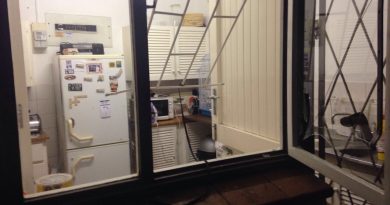When the lights go out, are you covered?
Whether it’s from a power cut caused by load shedding, cable theft or a lightning strike, a power surge can cause serious damage to your appliances in an instant.
Apart from unplugging your appliances when a lightning storm looms, it’s important to check if your insurance policy covers you for damage caused by power surges.
What causes a power surge?
A power surge (spike) or dip (brownout) happens when the delivery of power to the national grid isn’t properly controlled by the transformers on the lines. The resulting uneven delivery causes too much power to enter your home, in the case of a spike, and too little in the case of a brownout. This can happen when the grid becomes overloaded (brownout) or when the power supply is restored after a power outage (surge).
A spike or dip in energy can damage sensitive electronic components in appliances such as TVs, computers and laptops as well as internet modems or routers. Damage from power surges can extend to electrical fixtures such as intercom systems, gate motors, borehole pumps and swimming pool pumps.
How to protect yourself?
It’s always a good idea to use surge protectors for high-end equipment, such as your entertainment centre. The same goes for PCs and laptops – these are expensive to replace, and the data they store is often irreplaceable.
There are different types of surge protectors on the market; it is therefore important to talk your supplier to ensure that you choose suitable solutions for your needs. It is important to note that, depending on the strength of the surge, damage might still occur despite the protector.
Whenever possible, minimise harm by unplugging electrical devices if there is a storm approaching or if you are alerted to a possible power outage. If the power goes off unexpectedly, play it safe by simply turning off (or even better, disconnecting) any electrical appliances that you were using. Keep one light switch on to alert you when the power is restored.
Check with your insurance company to see whether you are covered for power surges and dips
Although most insurance policies cover lightning damage, beware. Not all homeowners or household contents insurance policies automatically cover you for damage caused by power surges and dips.
If you are a MiWay client, for example, cover for power surges and dips is optional.
The average household has electrical equipment and appliances with replacement values amounting to tens of thousands of Rand. Appliances damaged by a power surge can leave a serious dent in your pocket. Avoid the risk by making sure your valued electronics are covered.
For more information on home and content insurance, visit www.miway.co.za
Also view:
MiWay is an Authorised Financial Services Provider (Licence no: 33970)
MiWay Insurance Limited (‘MiWay’) is a direct, short-term insurance company, offering customers a range of short-term insurance products including motor, household and homeowners insurance as well as add-on products such as warranty cover and liability cover. MiWay’s shareholder is Santam, a blue-chip JSE-listed company.





